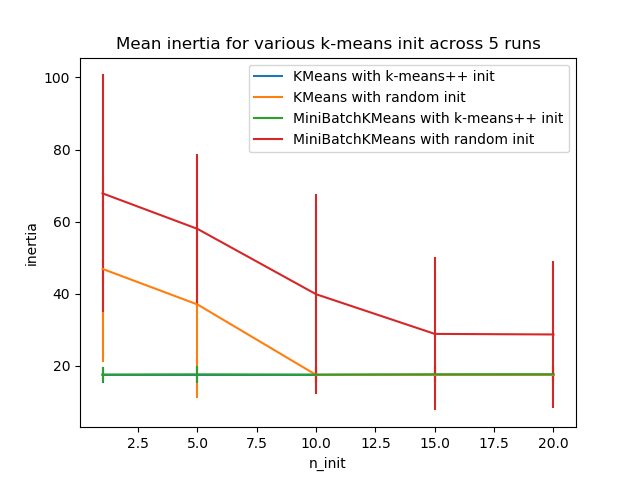sklearn.utils.shuffle?
sklearn.utils.shuffle(*arrays, **options)
以一致的方式隨機排列數組或稀疏矩陣
這是一個方便的別名,用于resample(*arrays, replace=False)對集合進行隨機排列。
| 參數 | 說明 |
|---|---|
| *arrays | sequence of indexable data-structures 可索引的數據結構可以是數組、列表、數據矩陣或具有一致第一維的稀疏矩陣。 |
| 返回值 | 說明 |
|---|---|
| shuffled_arrays | sequence of indexable data-structures 集合中打亂的副本的序列。原始數組不受影響。 |
| 其他參數 | 說明 |
|---|---|
| random_state | int, RandomState instance or None, optional (default=None) 確定用于對數據進行混排的隨機數生成。 在多個函數調用之間傳遞int以獲得可重復的結果。 請參閱詞匯表。 |
| n_samples | int, None by default 要生成的樣本數量。如果為空,則自動將其設置為數組的第一個維度。 |
另見:
示例:
可以在同一運行中混合使用稀疏數組和密集數組:
>>> X = np.array([[1., 0.], [2., 1.], [0., 0.]])
>>> y = np.array([0, 1, 2])
>>> from scipy.sparse import coo_matrix
>>> X_sparse = coo_matrix(X)
>>> from sklearn.utils import shuffle
>>> X, X_sparse, y = shuffle(X, X_sparse, y, random_state=0)
>>> X
array([[0., 0.],
[2., 1.],
[1., 0.]])
>>> X_sparse
<3x2 sparse matrix of type '<... 'numpy.float64'>'
with 3 stored elements in Compressed Sparse Row format>
>>> X_sparse.toarray()
array([[0., 0.],
[2., 1.],
[1., 0.]])
>>> y
array([2, 1, 0])
>>> shuffle(y, n_samples=2, random_state=0)
array([0, 1])


